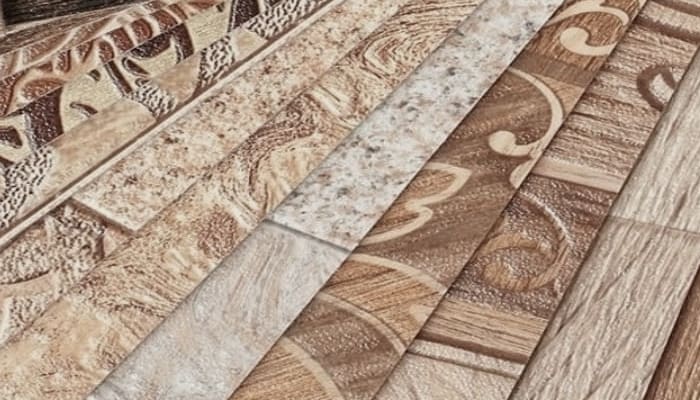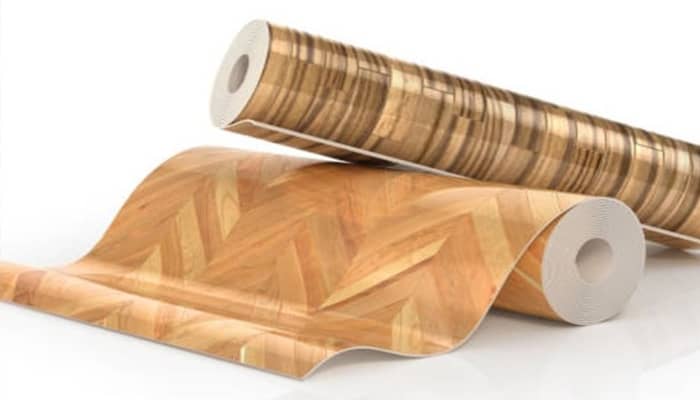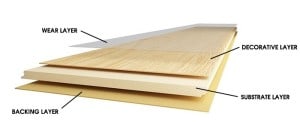When it comes to flooring, many people go with tile or wood. However, if you’re looking for a more affordable option, linoleum is a great choice. Linoleum is made of recycled materials and is easy to clean. Plus, it has a natural look that can complement any home décor. If you’re interested in linoleum for your home, be sure to continue reading this guide to choosing the right type for your needs.

What Is Linoleum Flooring?
Linoleum is a durable, affordable, and easy-to-clean flooring option that has been around since the 1800s. Originally made from linseed oil and wood shavings, it is now often made with recycled materials. Linoleum is available in a variety of colors and patterns, and can be installed in almost any room of your home.
Pros and Cons of Linoleum Flooring
Linoleum flooring is made from natural materials, so it is environmentally friendly and biodegradable. It is also very durable; it can last for 20 years or more. Linoleum is easy to clean and maintain, and it does not require any special care. It is available in a variety of colors and patterns, so you can find the perfect flooring for your home. It is also a good choice for people with allergies, as it does not contain any harmful chemicals or emissions.
Linoleum flooring is often seen as a disadvantageous option due to its flammability, as well as its susceptibility to moisture damage. Additionally, it can be difficult to repair if it becomes damaged and might have to replace the whole flooring.

Types of Linoleum Flooring
There are a number of different types of linoleum flooring, each with its own benefits and drawbacks. When choosing linoleum flooring, it’s important to consider your needs and preferences.
- Linoleum Tile Flooring
- Sheet Linoleum
- Marble Linoleum
- Floating Linoleum Flooring
- Flecked Linoleum
- Patterned Linoleum
- Forbo Linoleum
- Solid Colored Linoleum
How to Choose Linoleum Flooring
When choosing flooring for your home, there are many factors to consider. Some factors, like price and durability, are relatively straightforward. Others, like environmental impact and noise reduction, can be more complicated.
Cost
Cost is a major factor to consider when choosing flooring for your home. Linoleum is a less expensive option than some of the other materials available, such as hardwood or tile, making it a wise investment for your home.
Comfort
Comfort is a factor that many people consider when choosing flooring for their homes. Some people may prefer a softer surface, like linoleum, to walk on. Linoleum is also a good insulator and can help keep a room warm in the winter.
Durability
Durability is one of the most important factors to consider when choosing flooring for your home. Linoleum is a durable material that can withstand heavy traffic and is resistant to scratches and stains.
Aesthetics
While functionality and practicality are important, many people also want their home to be visually appealing. Linoleum flooring can be a good option for those who are looking for a flooring material that has a natural appearance and texture. It is also available in a wide variety of colors, so you can find one that will complement the rest of your décor.
Eco-Friendliness
Linoleum is made from natural materials like linseed oil and cork, which means it doesn’t release harmful toxins into the environment like some other flooring materials can. It’s also biodegradable, meaning that it will eventually break down and won’t leave any harmful residue behind.
Easy Maintenance
Unlike some other types of flooring, linoleum does not require a lot of special care. It can be swept and mopped easily, and it does not show dirt and dust as easily as other materials. This makes it a good choice for people who are not able to spend a lot of time cleaning their floors.
Compatibility with Other Flooring Types
Linoleum is often chosen as a flooring type for homes because of its compatibility with other flooring types. It can be used in combination with tile, hardwood, and even other linoleum floors to create a unique look in each room.

Can You Paint Linoleum Floors?
Linoleum floors can be painted, but the paint may not adhere as well as it would to a harder surface. The paint may also peel if it is not applied correctly or if there is too much moisture on the linoleum. Before painting a linoleum floor, it is important to clean it and make sure that it is completely dry. It is also a good idea to apply a coat of sealant to protect the floor from the paint.
Can You Put Vinyl Plank Flooring Over Linoleum?
Yes, vinyl plank flooring can be installed over linoleum. The existing linoleum must be in good condition and completely smooth for the vinyl plank flooring to adhere properly. If there are any bumps or ridges on the surface of the linoleum, they will show through the vinyl planks and create an unattractive appearance. It is also important to remove all of the old adhesive from the linoleum surface before installing the vinyl planks.
Can You Steam Clean Linoleum Floors?
Linoleum can be steam cleaned, but it’s important to test a small area first to make sure the heat doesn’t damage the surface. If the linoleum is sealed with a protective coating, steam cleaning may not be necessary.
What Is the Difference Between Linoleum and Vinyl Flooring?
Linoleum and vinyl flooring are both types of flooring, but they have different properties. Linoleum is a natural product made from linseed oil, wood flour, and cork dust, while vinyl is a synthetic product made from petrochemicals.
Linoleum is softer and more pliable than vinyl, and it is also more environmentally friendly because it is biodegradable. Vinyl is more durable than linoleum and is less likely to scratch or fade.
Does Linoleum Flooring Have Asbestos?
The use of asbestos in linoleum flooring varied depending on the manufacturer and time period. Some early examples of linoleum flooring contained asbestos, but its use was discontinued in the 1970s. However, some older homes may still have asbestos-containing linoleum, so it is important to consult with a professional if you are concerned about the safety of your flooring.
Conclusion
In conclusion, there are many reasons why you should choose linoleum flooring for your home. It is a natural product that is made from renewable resources, it is durable and easy to clean, and it is affordable. Linoleum flooring is also a good choice for people with allergies or sensitivities to other flooring materials. So, if you are looking for a beautiful, durable, and affordable flooring option, linoleum should be at the top of your list.





